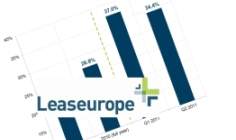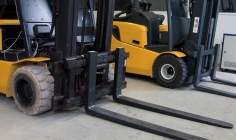
Thanks to comparatively low national debt, low inflation and a banking sector perceived as “safe and stable”, the muscular Australian leasing industry has largely avoided fallout from the European crisis. Smaller neighbour New Zealand, however, is feeling the pain of reliance on export, Claire Hack and Grant Collinson discover.
The leasing industry in Australia has proved strong and resilient in its relative geographical isolation and has remained broadly protected from the eurozone debt crisis.
The country’s smaller neighbour New Zealand, however, with a greater dependence on export, has been affected by a fall in demand from flagging overseas economies.
With Australian banks largely perceived as safe and financially stable thanks to strong capitalisation and a higher return on equity than their European and US rivals, and comparatively low levels of debt and inflation, both nations have enjoyed modest but steady economic growth over 2011 and 2012.
“Australia’s banks were ranked as the most profitable in developed countries,” says Alan Leesmith of IAA-Advisory.
Leesmith adds Australia’s banking sector was ranked ahead of closest competitors Canada and the US by around 20% and 33% respectively by the BIS (Bank of International Settlements) and says Australia’s four main banks still carry “AA” ratings, placing them among the top ten banks in the world.
How well do you really know your competitors?
Access the most comprehensive Company Profiles on the market, powered by GlobalData. Save hours of research. Gain competitive edge.

Thank you!
Your download email will arrive shortly
Not ready to buy yet? Download a free sample
We are confident about the unique quality of our Company Profiles. However, we want you to make the most beneficial decision for your business, so we offer a free sample that you can download by submitting the below form
By GlobalDataThe countries’ economies have not, however, escaped completely unscathed – New Zealand especially in the wake of the 2011 earthquake in Christchurch – but they have not suffered quite the same levels of volatility as their European or US counterparts, a reality reflected in their respective leasing industries.
According to the Australian Equipment Leasing Association (AELA) which represents the country’s asset finance industry, leasing and equipment finance represents about 40% of the country’s capital expenditure on equipment capital and the industry plays a key role in providing equipment to Australia’s manufacturing base.
The total new business volume including equipment and fleet leasing came to A$43.8bn (35.7bn) for the fiscal year 2011/2012, which marked a 15% year-on-year increase, according to the AELA.
“The Australian leasing market has fared well compared to the major established European economies,” says Leesmith who regularly advises on the Australian market.
“This is due to the fact that the Australian economy has not suffered in the same way that Europe has. Trade with China in particular in raw materials, minerals and coal has remained buoyant, albeit the rate at which sales have grown has slowed as China slowed its growth rate,” he adds.
Regulation
Regulatory changes have also had an impact during this financial year as global economies look towards tightening the reins on financial institutions and Craig Edwards, chairman of AELA, believes the impact is not necessarily negative.
“Regulation of activity, whether of a corporate or personal nature, is intrinsic to any society,” Edwards said in his annual review of 2011/2012. “Regulatory reforms can benefit all stakeholders.”
Edwards pointed to the fact legislation which placed stamp duties on equipment finance has now largely been removed and replaced with the single Personal Property Securities regime in January which he said has had a positive effect for both users of equipment finance and financiers.
Like its global counterparts, AELA, and the industry it represents, is bracing for change in the international lease accounting standard and Edwards said the association is working with other leasing industry bodies to coordinate a global response.
Despite business growth, economic conditions have been difficult in Australia as a result of the global financial crisis and some equipment financiers have left the Australian market, while others face significant funding challenges, Edwards said.
French-owned Societe Generale Equipment Finance pulled out of the market in 2009 and US-based CIT and Key Equipment Finance both sold their Australian businesses recently.
Lloyds Banking Group subsidiary Capital Finance, De Lage Landen and GE Capital continue to operate in Australia along with several captive finance businesses.
Edwards is confident Australian leasing will continue to grow and points to steady low levels of bad debt as a sign of the buoyancy of Australia’s business community
Leesmith is also cautiously optimistic and says the growth in Australian leasing will be closely tied to the fortunes of the Australian economy, which in turn is very heavily influenced by Australia’s trade with China and the countries of South East Asia.
“It should be remembered that by the end of this decade, it is expected that the Asian economies will be greater than those of the USA and Europe combined,” he says.
Export troubles
Meanwhile, across the Tasman Sea, New Zealand, as an export nation, has been hurt by its over-valued dollar, as well as the fall in demand for goods in the eurozone following the financial crisis, according to Nigel Bell-Booth, sales manager at fleet lessor ORIX New Zealand.
This in turn has had a damaging effect on business confidence, and especially in those industries directly involved in export, as well as those that service the companies exporting to these markets.
The New Zealand government has provided limited direct support to New Zealand industry, Bell-Booth adds, although controversially agreed to underwriting a number of large investment companies, one of which folded costing tax payers in excess of NZ$1.6 billion (1bn).
Nonetheless, New Zealand has been largely sheltered from the eurozone crisis, says Bell-Booth, thanks to modest national debt levels and the majority of the country’s corporate and personal banking being held by the “safe” Australian banks.
While the Australian leasing market is supported by the AELA, New Zealand lacks a body specifically dedicated to asset finance although the industry is supported by the Financial Services Federation.
It is also bolstered by an active rental vehicle association, the Rental Vehicle Association New Zealand (RVANZ). The majority of rental vehicle operators in the country are linked to a resilient tourism industry which in turn feeds a robust fleet leasing industry, the association said.
Looking to other client sectors, ORIX’s Bell-Booth said no specific market segments have stood out this year.
“In general corporate businesses have recently shown improved trading following the post-global financial crisis downturn, while the SME sector is still struggling,” he said.
“The New Zealand fleet market is relatively mature, with little chance for dramatic growth considering the country’s economic stagnation.
Growth for the majority of lease companies will now come generally through competitive action, or converting current company-owned fleet to leasing,” Bell-Booth said.
“In terms of the greater market, construction, and any businesses closely aligned to this industry, have continued to suffer from the lack of new projects, although the Christchurch rebuild from the 2011 earthquakes will significantly stimulate this sector, when finally undertaken,” he added.





